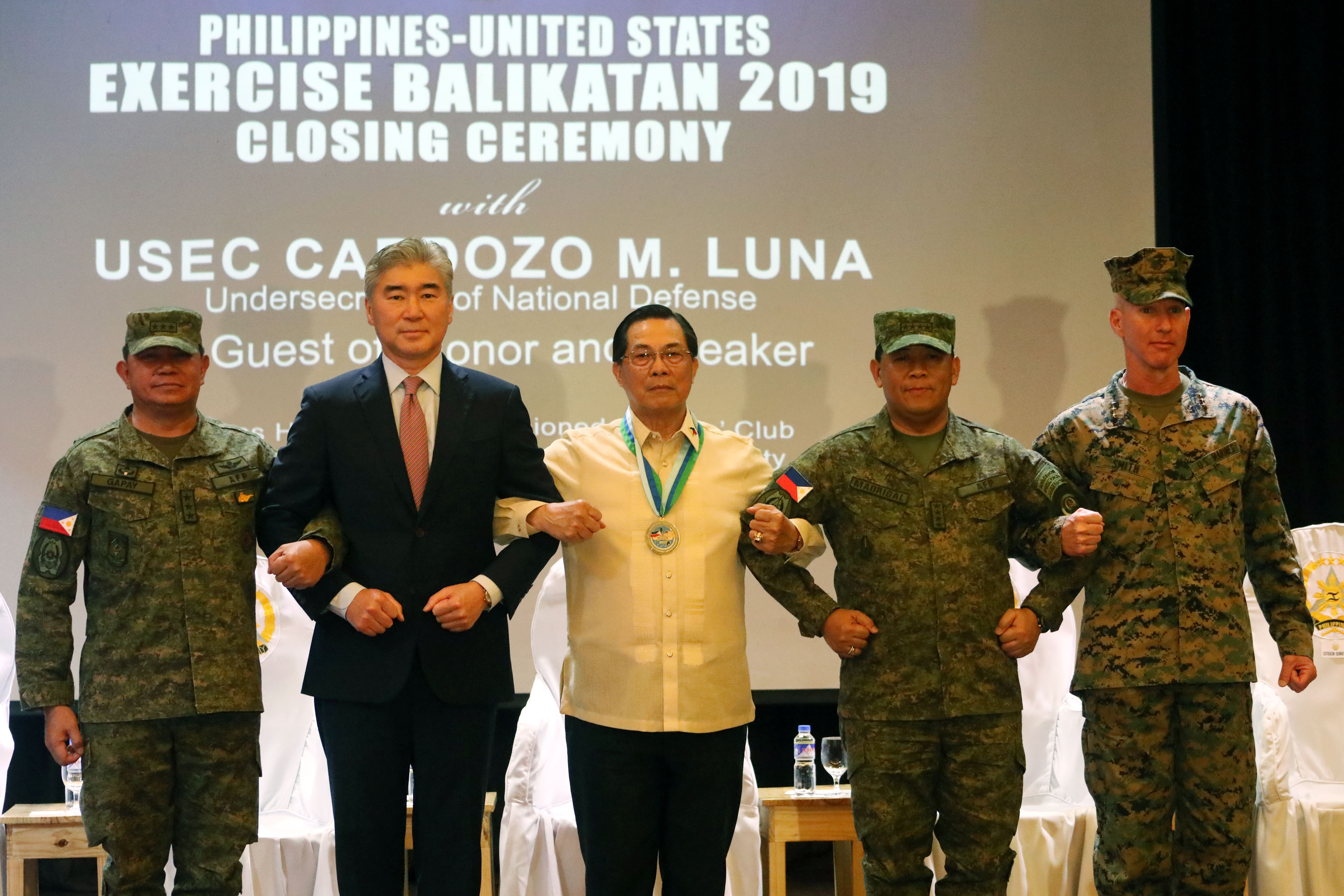News
Airfield retaking, a vital anti-terror skill: ‘Balikatan’ official

FILE: BALIKATAN CLOSING CEREMONIES. (From left to right) Lt. Gen. Gilbert Gapay, Philippine Exercise Director for Balikatan 2019; US Ambassador to the Philippines Sung Kim; Department of National Defense (DND) Undersecretary Cardozo Luna; Armed Forces of the Philippines (AFP) Chief-of-Staff, Gen. Benjamin Madrigal Jr.; and Lt. General Eric Smith, US Commanding General of the III Marine Expeditionary Force; join hands at the closing ceremonies of the Philippines-United States Balikatan Exercises 2019 held at Camp Emilio Aguinaldo in Quezon City on Friday (April 12, 2019).
About 4,000 Filipinos, 3,500 Americans as well as 50 Australian troops, participated in this year’s “Balikatan” exercises which began on April 1. (PNA photo by Joey O. Razon)
MANILA — The capability to retake an airfield is an essential part of efforts to combat terrorism.
“So as far as air(field) seizure, it was one of the scenarios we, as planners, deemed necessary to be included this year because one of the main capability we are developing is counter-terrorism.
So, scenario was air field (was) taken over by terrorists and we have to take over jointly,” Philippine “Balikatan” exercise director, Lt. Gen. Gilbert Gapay, said in a press briefing shortly after the closing ceremony of this year’s annual military maneuvers.
Gapay, who also heads the Southern Luzon Command, said the country’s special operation forces need to develop this capability.
“Yes, this is a capability we want to develop — the readiness to respond and retake any airfield in our territory,” the Philippine military official pointed out.
He also said all scenarios in this year’s “Balikatan” have been mutually agreed upon by Philippine and US planners.
“All scenarios in this year’s ‘Balikatan’ were mutually agreed upon. We planned this with US forces, our counterparts. Of course, decisions were made jointly. Scenarios were meant to be mutually beneficial to us,” Gapay said.
Head of the US 3rd Marine Expeditionary Force, Lt. Gen. Eric Smith, echoed Gapay’s remarks.
“Like Gen. Gapay said, we jointly developed scenarios. There are two parts to this: the first part is we have certain skillsets, flying helicopters into tight terrains, troops seizing an airstrip or landing zone. This is a basic skillset for marines and soldiers. Refueling airplanes, doing air command-and-control, make sure your planes are safely operating in very tight environments. For the young Marine soldiers out there, you have to have scenarios that are meaningful, that they can get behind and understand. You can’t just say go land here and secure this piece of ground. There has to be a scenario, a context or there’s limited training value,” Smith said.





















